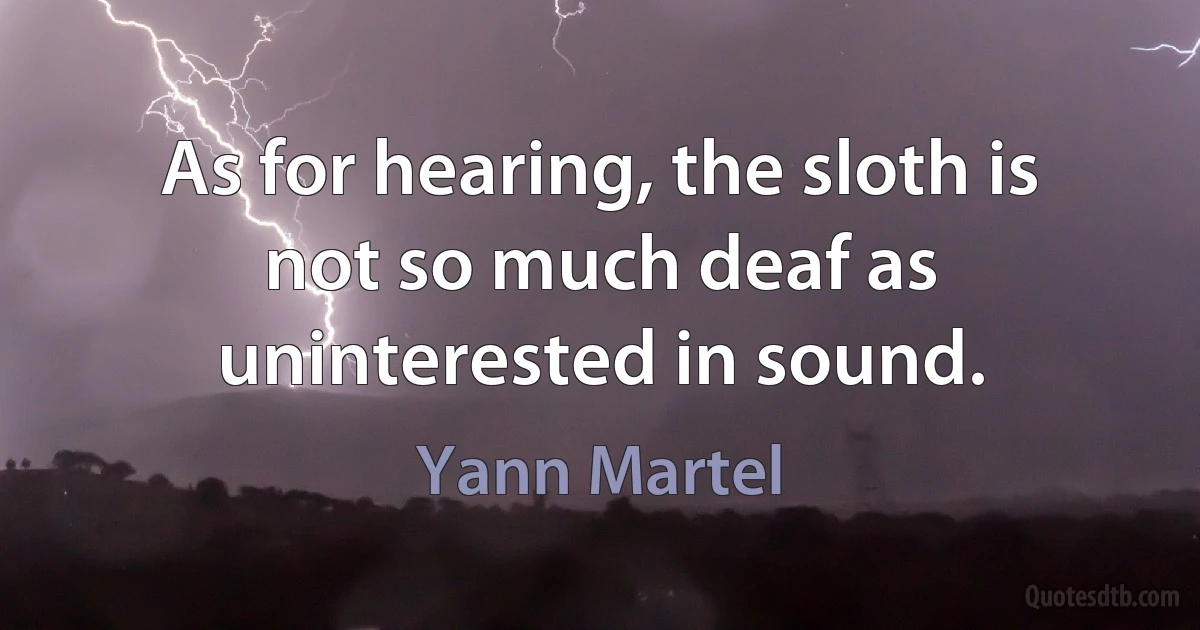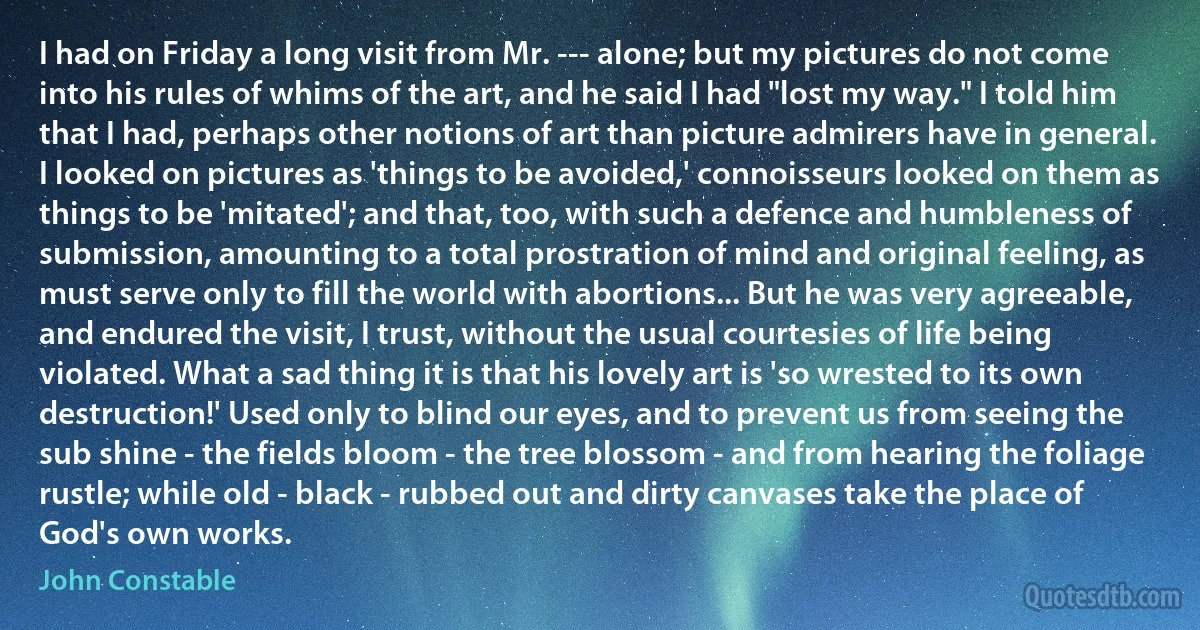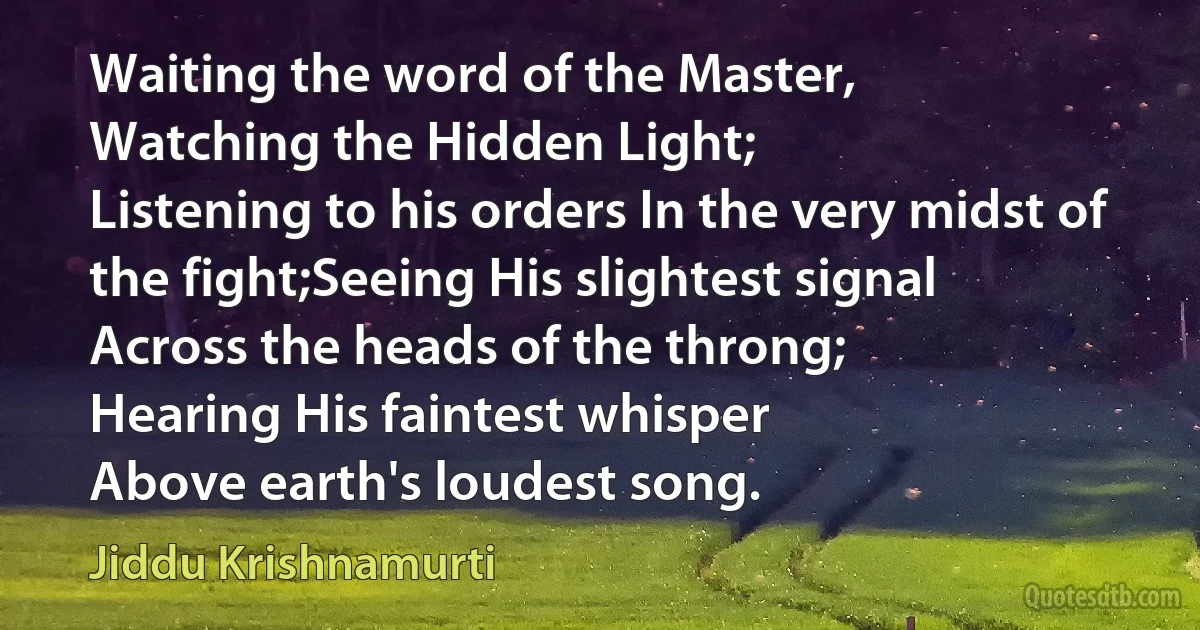Hearing Quotes - page 9
We have had enough perpetually hearing MACHINE MACHINE MACHINE MACHINE. In the repetition of the word MACHINE, we read the modern artist's ambivalent relationship to mechanical reproduction: on the one hand, the rigorous linear order and uniform application of ink presented by the thrice-repeated type written line celebrates sterility; and on the other hand the content of the sentence itself bemoans the transformation of the industrial paradigm into an aesthetic cliché.

El Lissitsky
In general they are intoxicated by the fame of mass culture, a fame which the latter knows how to manipulate; they could just as well get together in clubs for worshipping film stars or for collecting autographs. What is important to them is the sense of belonging as such, identification, without paying particular attention to its content. As girls, they have trained themselves to faint upon hearing the voice of a 'crooner'. Their applause, cued in by a light-signal, is transmitted directly on the popular radio programmes they are permitted to attend. They call themselves 'jitter-bugs', bugs which carry out reflex movements, performers of their own ecstasy. Merely to be carried away by anything at all, to have something of their own, compensates for their impoverished and barren existence. The gesture of adolescence, which raves for this or that on one day with the ever-present possibility of damning it as idiocy on the next, is now socialized.

Theodor Adorno
On hearing: "It's an extremely important faculty which helps to balance the nervous system. Besides, people do not hear or see the same thing. There are specialists, especially in France, that measure hearing and determine the frequencies that the ear cannot hear or can only hear at greater intensity. This can cause psychological problems".

Vangelis
The men of the Niagara Movement coming from the toil of the year's hard work and pausing a moment from the earning of their daily bread turn toward the nation and again ask in the name of ten million the privilege of a hearing. In the last year the work of the Negro hater has flourished in the land. Step by step the defenders of the rights of American citizens have retreated. The work of stealing the black man's ballot has progressed and the fifty and more representatives of stolen votes still sit in the nation's capital. Discrimination in travel and public accommodation has so spread the some of our weaker brethren are actually afraid to thunder against color discrimination as such and are simply whispering for ordinary decencies.

W. E. B. Du Bois
But then if you think about it, his perspective as growing up in Kenya with a Kenyan father and grandfather, their view of the Mau Mau Revolution in Kenya is very different than ours because he probably grew up hearing that the British were a bunch of imperialists who persecuted his grandfather.

Mike Huckabee
[My family] suffer so much. My mother was much older when I came out [of detention]. She had problems with her hearing and high blood pressure. But they still support me. When you make somebody disappear and you don't announce it to the family, what is this? You make people desperate and bring them close to death. If our cat or dog is lost, it makes us desperately want to know where it is-so for humans disappearing, you can barely imagine the pain. What kind of society is this? If a society cannot even support somebody like me, then people ask: Who is under protection, then? That's why there is such support for me. It is not because I am so beautiful or so charming. People feel, This guy is fighting for us.

Ai Weiwei
By the painful light of the factory's huge electric lamps
I write in a fever.
I write gnashing my teeth, rabid for the beauty of all this,
For this beauty completely unknown to the ancients.O wheels, O gears, eternal r-r-r-r-r-r-r!
Bridled convulsiveness of raging mechanisms!
Raging in me and outside me,
Through all my dissected nerves,
Through all the papillae of everything I feel with!
My lips are parched, O great modern noises,
From hearing you at too close a range,
And my head burns with the desire to proclaim you
In an explosive song telling my every sensation,
An explosiveness contemporaneous with you, O machines!

Fernando Pessoa
He was deeply impressed by the eloquence of the plaintiff, and after hearing his evidence he exclaimed, "I believe you are right!"
The clerk of the court explained that he should make no such comment until he had heard the case for the defence. Having done so, Nasruddin cried out, "I believe you are right!"
"But they can't both be right," expostulated the clerk.
"I believe you are right," said the Mulla.

Nasreddin
For when we are interested in the beauty of a thing, the oftener we can see it the better; but when we are interested only by the story of a thing, we get tired of hearing the same tale told over and over again, and stopping always at the same point - we want a new story presently, a newer and better one - and the picture of the day, and novel of the day, become as ephemeral as the coiffure or the bonnet of the day. Now this spirit is wholly adverse to the existence of any lovely art. If you mean to throw it aside to-morrow, you can never have it to-day.

John Ruskin
Critics frequently cry 'Dada' after attending one of my concerts or hearing one of my lectures. Others bemoan my interest in w:Zen. One of the liveliest lectures I ever heard was given by Nancy Wilson Ross at the Cornish School in Seattle. It was called Zen Buddhism and Dada. It is possible to make a connection between the two, but neither Dada nor Zen is a fixed tangible. They change; and in quite different ways in different places and times, they invigorate action. What was Dada in the 1920's is now, with the exception of the work of Marcel Duchamp, just art. What I do, I do not wish blamed on Zen, though without my engagement with Zen... I doubt whether I would have done what I have done... I often point out that Dada nowadays has in it a space, an emptiness, that it formerly lacked. What nowadays, America mid-twentieth century, is Zen?

John Cage
[Speaking about the US military's Don't Ask, Don't Tell policy] The health of a democracy is directly dependent on hearing the voices of its individual citizens. Silence is destructive. What could mar our safety more than this restrictive policy that requires its citizens' silence? What could mar our safety more than this restrictive policy that quietly attacks its own citizens' very selfhood out of fear? What keeps us truly unsafe as a country on a day-to-day basis is our inability to look inside and experience ourselves as a multitude, as a complexity. And as sure as I'm standing here, things are not always black or white, but sometimes they can be both.

Jennifer Beals



